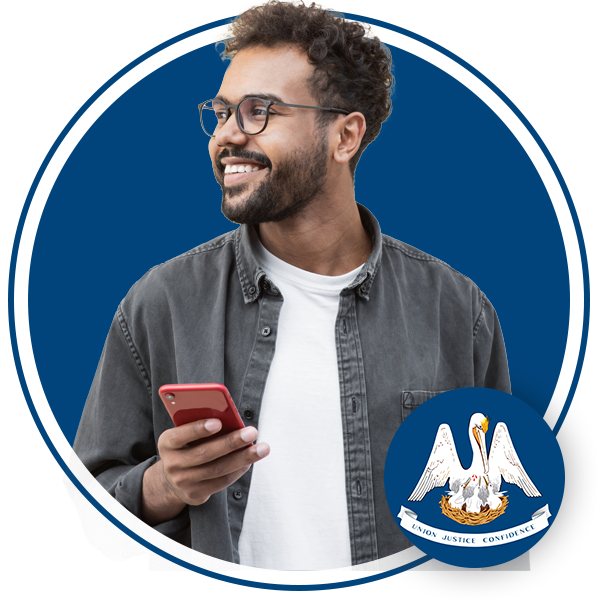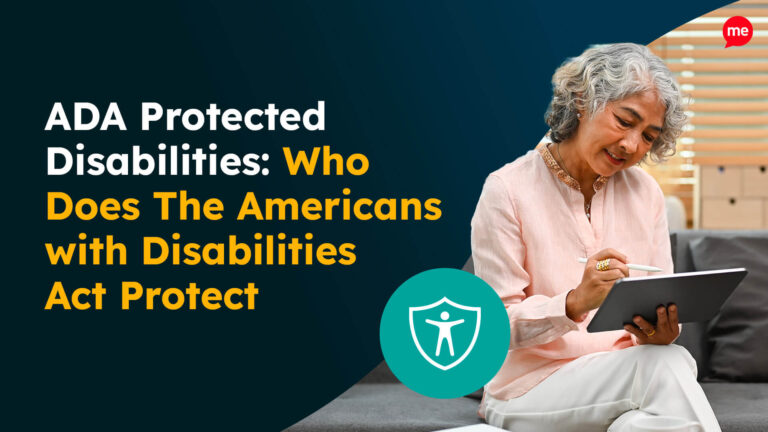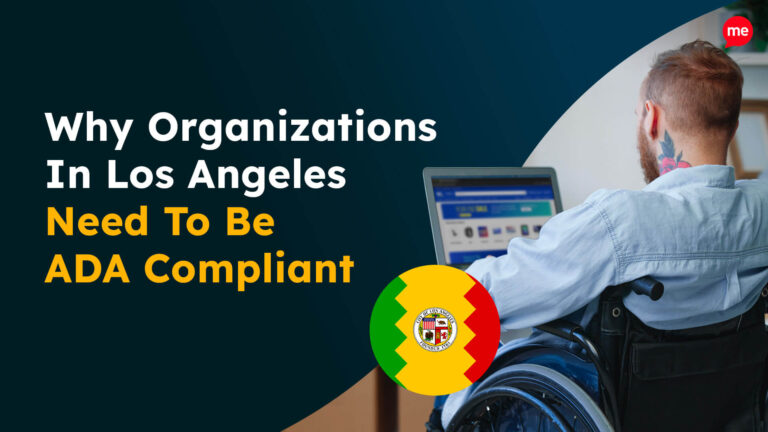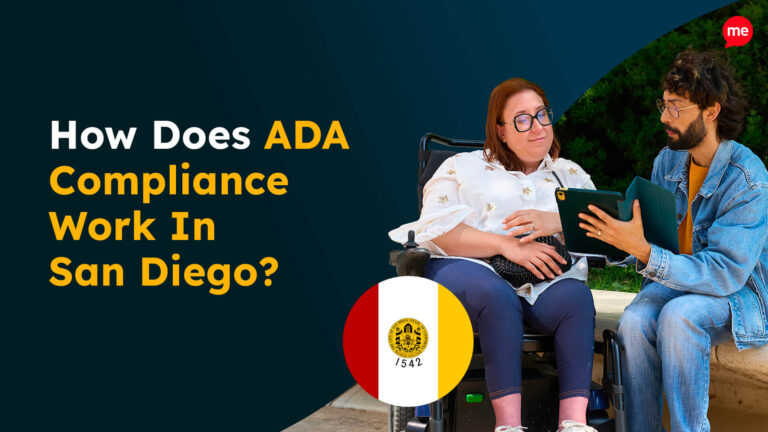Get A Free ADA Compliance Audit Of Your Website
Download NowIn recent times, the digital revolution has drastically altered how businesses engage with customers, underscoring the critical importance of website accessibility. Conveniently, it is also a legal mandate to ensure that online platforms do not discriminate against disabled web users.
The state of Louisiana has a disability prevalence of 15% and is one of the many states across the country combating digital inaccessibility through accessibility laws and legislation.
Web Accessibility Laws in Louisiana
In Louisiana there are important state-wide accessibility legislations that should be adhered to by businesses operating in the state. These legislations refer to the Americans with Disabilities Act and Section 508 of the Rehabilitation Act. Let’s explore these accessibility laws in some more detail.
The Americans With Disabilities Act
Originally designed to address physical accessibility challenges for individuals with disabilities, the Americans With Disabilities Act (ADA) now extends its reach to digital realms, recognizing that websites and online platforms are integral extensions of physical spaces. This broadened scope encompasses three key titles pertaining to website accessibility, which apply to both government agencies and public-facing organizations:
- Title I of the ADA requires federal employers to ensure accessibility in their employment practices.
- Title II looks at the accessibility of public services and programs offered by state and local governments.
- Title III extends to private entities serving the public, mandating equitable online access to goods, services, facilities, and privileges for individuals with disabilities.

Section 508 Compliance
The Rehabilitation Act’s Section 508 stipulates that all electronic and information technology utilized by federal agencies, encompassing websites, software, and other digital components, must be accessible to individuals with disabilities, whether they are employees or members of the public. It aims to achieve two primary objectives:
- Equitable Access for Federal Employees: By removing digital obstacles, all federal employees can equally utilize online resources, fostering full engagement and productivity irrespective of disabilities.
- Comparable Access for the Public: Ensuring that disabled and non-disabled citizens have comparable access to public information and services, promoting fairness and inclusivity in digital interactions.
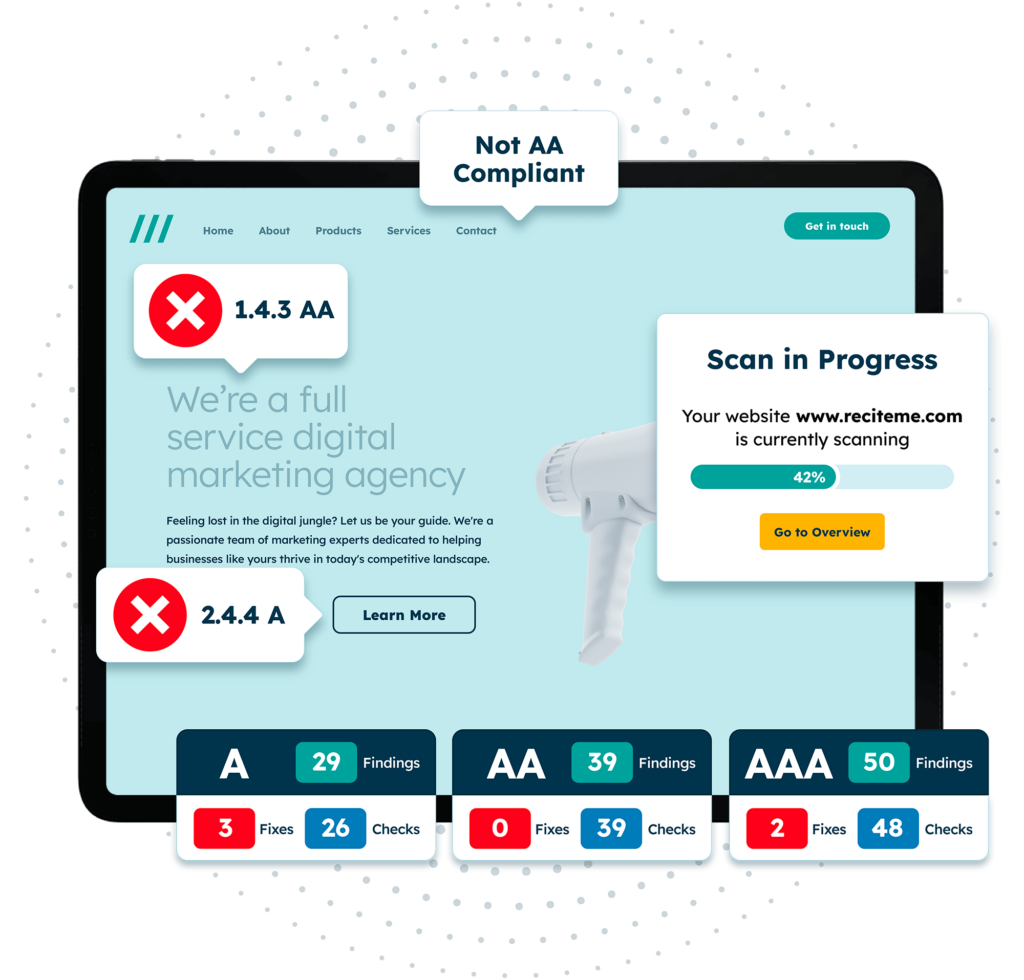
Free Accessibility Check of your Website
Finding accessibility issues is now easier than ever. Recite Me offers a free automated scan of your website’s homepage to highlight non-compliance. You’ll get recommendations on how to fix them, helping to improve your accessibility score.
What Types of Business Are Affected By Louisiana Web Accessibility Legislation?
It might seem that the ADA stands as the sole legislation governing web accessibility in Virginia for both public and private entities. But, this isn’t always the case, some privately owned organizations may be required to comply with section 508 standards if they work or have ties with government agencies. Examples of this includes:
- Direct or indirect subcontractors
- Non-profit grant recipients
- For-profit grant recipients
What are The Risks and Consequences of Non-Compliance?
The initial consequences faced by non-compliant organizations found in breach of the ADA and/or Section 508 include monetary fines. This also comes with the associated legal expense of length lawsuits. Additionally, organizations receiving government grants or funding could have their contracts revoked.
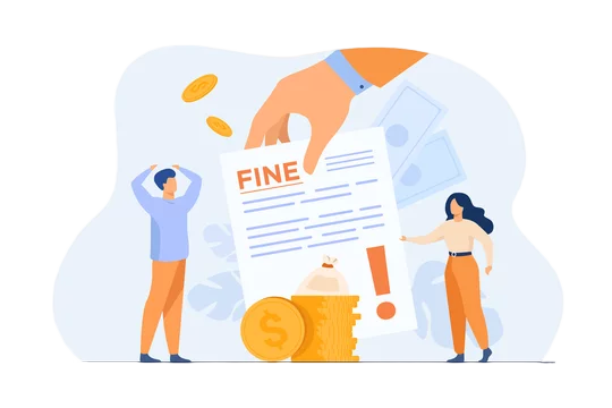
While these are the initial impacts, that are clear and obvious to the organization. There are also many additional impacts and consequences that can arise from having to face these types of lawsuits. These include:
- Damaged brand image & reputation.
- Reduced employee morale, satisfaction and retention.
- Increased regulatory scrutiny in the future.
- Loss of revenue as a result of operating a non-compliant website.
Notable Digital Accessibility Lawsuits in Louisiana
It is important to note that the risk of accessibility lawsuits is a real possibility in Louisiana. If your organization is non-compliant then a complaint could be filed against you at any moment. There have been many lawsuits in Louisiana that we can look back at as an example. Some of these can be found listed below.
McNeese State University
Plaintiff: Jade Covington & Colette Josey Covington.
The Defendant: McNeese State University.
Case Details: The Plaintiffs claimed that the university had inaccessible facilities. The case mainly revolved around inaccessible restrooms, asserting it violated the ADA compliance requirements.
Outcome: The Plaintiffs and defendant reached a private, undisclosed settlement. Damages were paid to the Plaintiffs. The University then took steps to improve their facilities inline with ADA requirements. They also took steps to make online information on their website accessible, plus widely sharing information about disability access. Finally, they also designated an ADA coordinator to ensure the university stays ADA compliant.
Louisiana Tech University
Plaintiff: A blind college student at the Louisiana Technical University.
The Defendant: Louisiana Tech, State.
Case Details: The student claimed that Louisiana Tech, adopted an inaccessible internet-based application called MyOMLab for numerous aspects of coursework.
Outcome: The Plaintiff and defendant reached a private, undisclosed settlement. Damages were paid to the Plaintiff. Louisiana University then took the necessary steps to make all online learning accessible for people with disabilities. They also put ADA training in place for their employees.
Stay ahead of the game when it comes to Digital Accessibility laws and compliance in the United States. Learn about all the different federal and state-level regulations, see real examples of web accessibility lawsuits in different regions and discover a 7-step action plan for building accessible websites.
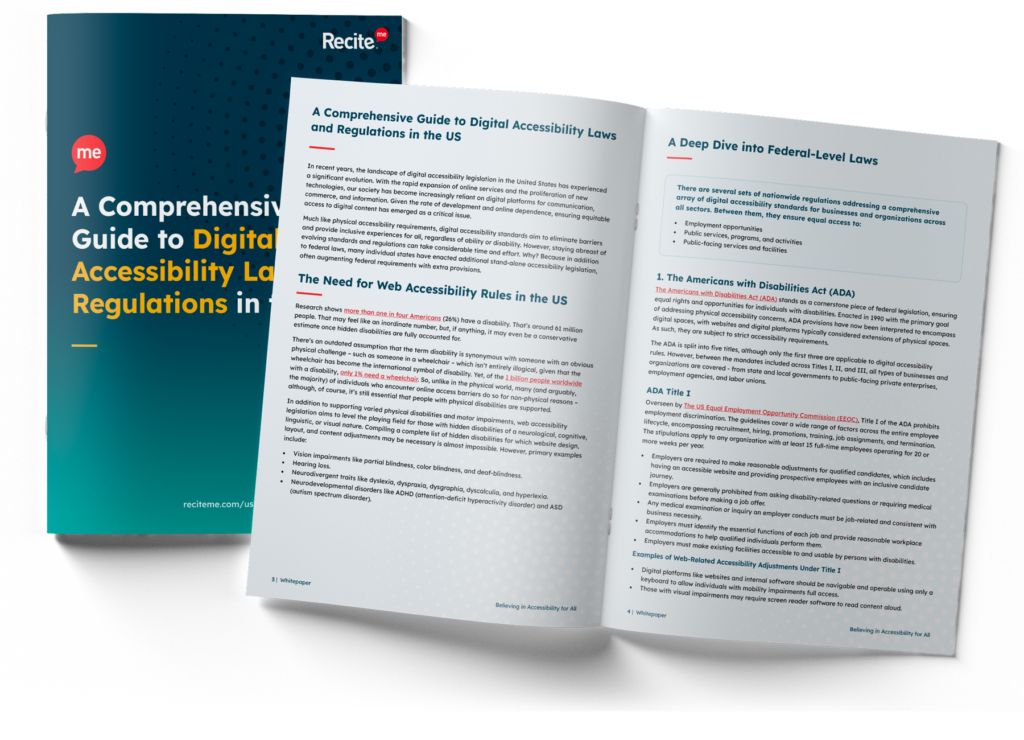
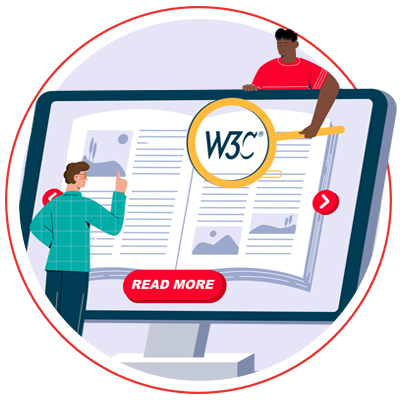
The Importance of WCAG Compliance
The Web Content Accessibility Guidelines is one of the main frameworks that underpins legislation like the ADA and Section 508. Being aware and learning about the WCAG standards and requirements can provide a lot of value in your journey to be accessibility compliant. As if you can make your website and online resources compliant with WCAG standards then you are typically more likely to be compliant with the latest state and federal accessibility laws.
Methods of Accessibility Compliance in Louisiana
There are a variety of different tools that organizations can invest in to improve their accessibility and help achieve legal compliance. This is one of the main areas that we help organizations with around the world here at Recite Me. We have developed a suite of digital accessibility tools to help improve accessibility and inclusivity, some of these tools include the following:
The Recite Me Accessibility Checker
The Recite Me Accessibility Checker is a tool that can be used to audit your website’s accessibility errors automatically. By highlighting inaccessible website design and accessibility errors, the tool provides the basis for improving compliance and weeding out design failures. Using this simple four step process as follows:
- Step 1: Scan – Run a site-wide or page-level scan on your website for accessibility barriers.
- Step 2: Identify – After the scan your accessibility errors will be displayed in an easy to use dashboard.
- Step 3: Fix – A Fix queue will be created in order of priority, allowing you to start making the necessary changes.
- Step 4: Track – Follow your accessibility journey with custom reports and progress updates as you become accessibility compliant.
Schedule a free demonstration or run a free scan today!
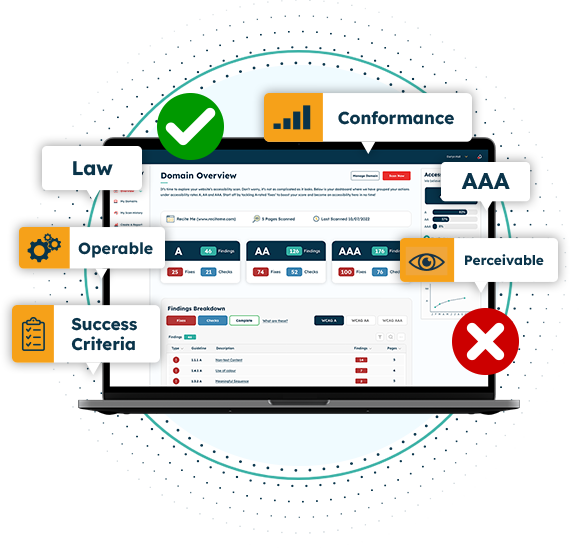
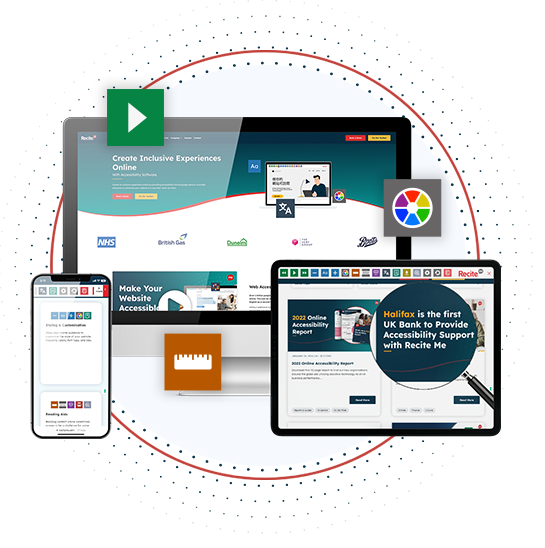
The Recite Me Toolbar
The Recite Me Accessibility Toolbar promotes inclusivity by allowing end users with sight loss, cognitive impairments, learning difficulties, physical disabilities, and varying linguistic needs to make singular or multiple adjustments for ease of navigation and content consumption. The Toolbar allows users to customize:
- Font size, type, and color options.
- Color contrast between the text and background.
- The display language (over 100 on-screen languages are available)
PDF documents - The method of consumption (download content as audio files or translate into 65 text-to-speech languages).
In addition, tools like the on-screen ruler, mask, zoom function, built-in spell-checker, and fully integrated dictionary and thesaurus help with focus and enhance comprehension.
Schedule a free demonstration, or try the toolbar today!
